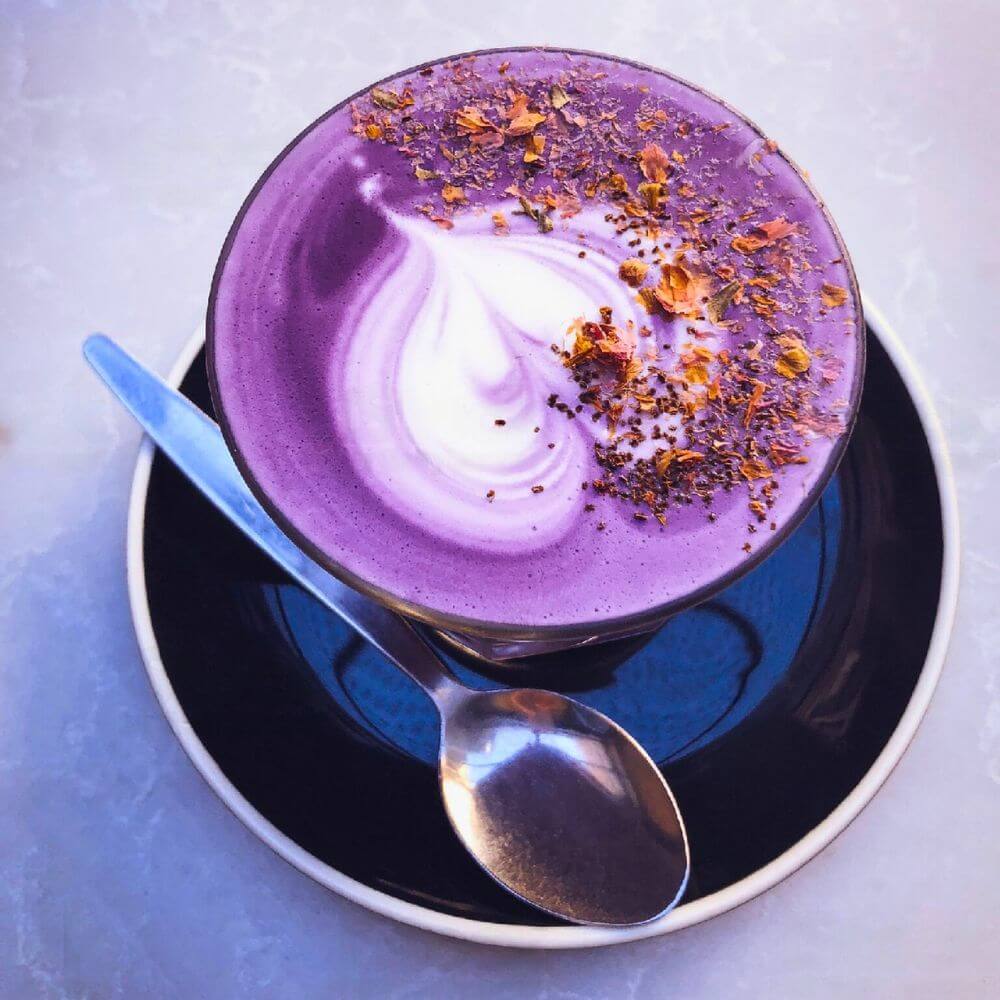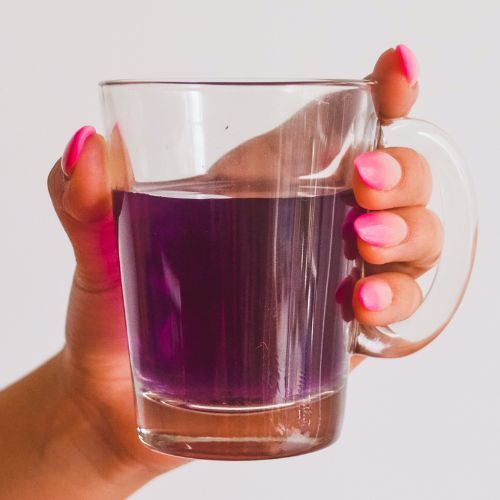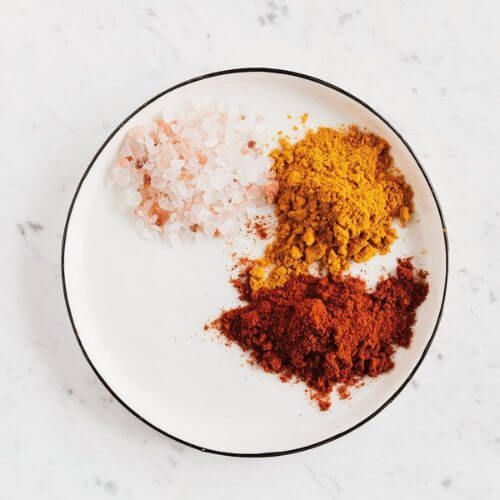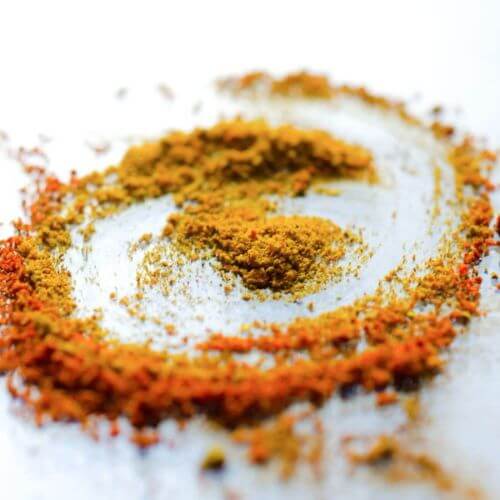Move Over Golden Latte, Black Turmeric Is Here To Steal The Spotlight!
Black turmeric is the new golden child of the health scene. Discover the dark and mysterious spice that's stealing the spotlight!
Move over golden latte, there's a new spice in town that's turning heads and stealing hearts: black turmeric. This exotic and mysterious spice is making waves in the health and wellness world with its unique flavor and impressive health benefits. While regular turmeric has been celebrated for its anti-inflammatory and antioxidant properties, black turmeric takes it to the next level with its higher concentration of curcuminoids.
Not only that, but its distinct dark color adds a dramatic touch to any dish or beverage. In this article, we'll explore what black turmeric is, its health benefits, how to use it, its color and taste, history, where to find it, its rise in the health industry, and its culinary uses.

What is Black Turmeric?
Black turmeric, also known as Curcuma caesia or black zedoary, is a rhizome plant that belongs to the ginger family. It is native to India and Southeast Asia and has been used for centuries in traditional medicine. Black turmeric is similar to regular turmeric, but it has a darker color, stronger aroma, and distinct flavor. Its dark color comes from the presence of a pigment called curcumin, which is also found in regular turmeric. However, black turmeric has a higher concentration of curcuminoids, making it more potent than regular turmeric.
Color and Taste of Black Turmeric
As its name suggests, black turmeric has a dark color that ranges from deep purple to black. Its flesh is also darker than regular turmeric. The taste of black turmeric is slightly bitter and earthy with a peppery kick. It has a stronger aroma than regular turmeric, with hints of ginger and camphor.
History of Black Turmeric
Black turmeric has a rich history dating back centuries. It has been used in Ayurvedic and traditional Chinese medicine to treat a variety of ailments, from digestive issues to respiratory problems. In India, black turmeric has been used as a natural dye for clothes and as an ingredient in perfumes. It was also believed to have spiritual and mystical properties and was used in religious ceremonies.
Comparison to Golden Turmeric
While black turmeric and golden turmeric are both part of the ginger family and share many health benefits, they do have some differences. Golden turmeric has a milder flavor and a brighter yellow color, while black turmeric has a stronger flavor and a dark purple to black color. Black turmeric also has a higher concentration of curcuminoids than golden turmeric, making it more potent.

Health Benefits of Black Turmeric
Like regular turmeric, black turmeric is packed with antioxidants and anti-inflammatory compounds that offer a range of health benefits. Here are some of the potential health benefits of black turmeric:
- Reduces inflammation: Black turmeric contains curcuminoids that have been shown to have anti-inflammatory effects. This can help alleviate symptoms of inflammation-related conditions such as arthritis, asthma, and allergies.
- Boosts immunity: The antioxidants in black turmeric can help boost the immune system and protect against infections.
- Improves digestion: Black turmeric has traditionally been used to improve digestion and treat gastrointestinal issues such as bloating, gas, and indigestion.
- Supports brain health: Studies have shown that curcuminoids can improve cognitive function and protect against neurodegenerative diseases such as Alzheimer's and Parkinson's.
- Enhances skin health: Black turmeric has antibacterial and antifungal properties that can help prevent and treat skin infections. It also has skin-lightening properties that can reduce the appearance of dark spots and hyperpigmentation.
- Cancer Fighting: Black turmeric has been shown to have cancer-fighting properties, thanks to its high levels of curcumin, which is a powerful antioxidant that can protect cells from damage.

How to Use Black Turmeric
Black turmeric can be used in a variety of ways, from cooking to skincare. Here are some ways to incorporate black turmeric into your daily routine:
- Black turmeric latte: Like the golden latte, the black turmeric latte is a popular way to consume black turmeric. Simply mix black turmeric powder with your milk of choice and sweetener.
- Tea: One of the most popular ways to consume black turmeric is as a tea by boiling slices of the root in water and adding honey or lemon to taste.
- Culinary uses: Black turmeric can be used in cooking and baking to add a unique flavor and color to dishes. It pairs well with rice, lentils, and vegetables, and can also be used to flavor soups and stews.
- Skincare: Black turmeric can be used as a natural skincare ingredient to brighten and even out the skin tone. Mix black turmeric powder with yogurt or honey to make a DIY face mask.
Where to Find Black Turmeric
Black turmeric can be found in specialty spice stores, health food stores, and online retailers. It is often sold in powder form or as whole roots. When purchasing black turmeric, look for a fresh, plump root with a dark color and no signs of mold or decay.
The Rise of Black Turmeric in the Health Industry
In recent years, black turmeric has gained popularity in the health and wellness industry due to its impressive health benefits and unique flavor. It has been featured in numerous health blogs, magazines, and social media posts as a superfood ingredient. It has also become a staple in many vegan and vegetarian diets due to its anti-inflammatory properties and versatility in cooking.
As the interest in natural remedies and alternative medicine grows, so does the fame of black turmeric. Golden turmeric has been a popular ingredient in natural health products and supplements for years, and now its dark cousin is starting to gain attention for its potent properties. Many health enthusiasts are using black turmeric in their daily routines, either by adding it to their meals or by taking it as a supplement. While science has yet to uncover all the potential health benefits of black turmeric, some believe that it could be a game-changer in the world of alternative medicine.
Culinary Uses of Black Turmeric
Black turmeric can be used in a variety of dishes and beverages to add a unique flavor and color. Here are some culinary uses for black turmeric:
- Rice and lentil dishes: Black turmeric adds a beautiful dark color and unique flavor to rice and lentil dishes.
- Soups and stews: Black turmeric can be used to flavor soups and stews, adding a spicy kick and a beautiful color.
- Smoothies and juices: Black turmeric can be added to smoothies and juices for an extra boost of antioxidants and anti-inflammatory compounds.
- Baked goods: Black turmeric can be used to add color and flavor to baked goods such as cakes, cookies, and bread.
Conclusion
Black turmeric is an exotic and mysterious spice that is taking over the health scene. Its impressive health benefits and unique flavor make it a versatile ingredient that can be used in a variety of dishes and beverages. Whether you prefer a black turmeric latte or a flavorful rice dish, this dark spice is sure to add a dramatic touch to your culinary creations. So go ahead, give black turmeric a try, and see for yourself why it's quickly becoming a favorite among health enthusiasts and foodies alike.
You Might Also Enjoy Reading This!



Disclaimer
Each of these products has been very carefully reviewed and selected by us at WellnessWishlist. All opinions in this article are our own, and we're proud to share them with you, however, all content is meant only to be informative and should not be taken as medical advice, nor used to diagnose, treat, and or prevent any health conditions. As Amazon associates, we may collect compensation from the affiliate links on this page, through qualifying purchases (that's how we stay in business). We truly hope you enjoy finding the next addition to your WellnessWishlist!


